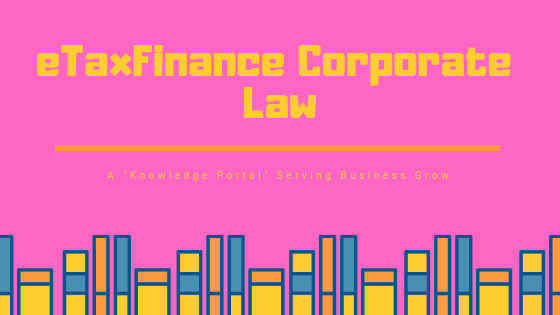What is Sole Proprietorship?
A sole proprietorship also referred to as a sole trader or a proprietorship is an unincorporated business with one owner. So such a firm is a one-person operation. “Sole” means only and “proprietor” refers to the owner.
A sole proprietorship is a popular and probably oldest business form in many countries because it is simple and easy to set up and operate. A sole proprietor is a legal entity, but it is merely used as a trading name and is not a legal entity like a company or enterprise. In a sole proprietorship, there is no difference between the owner of the business and business entity.
Features of Sole Proprietorship:
Some of the silent features of Sole Proprietorship are:
- Formation and Closure: This type of business organization is formed by the owner himself. No legal conventions are obliged to start the sole proprietorship form of organization. In some instances, the legal formalities are required or the owner should have a particular license or a certificate to run the business. The owner can close the business at his own discretion.
- Individual Liability: In the sole proprietorship business, the sole owner has unlimited liability. In this case, the owner is himself liable to pay all the liabilities. If he takes a loan for its business then he will be liable for all the debts. Hence, he is personally liable for all the debt which can be recovered by his personal estate when funds are insufficient.
- Sole Risk Bearer and Profit Recipient: A sole proprietor is only the one who bears all risks which are related to its business. All the profits or losses which are earned from the business are to be enjoyed by the sole owner.
- Individual Managerial Control: As all the rights and responsibilities lie with the sole proprietor that is why he controls all the business activities. No one can interfere in the business activities of a sole proprietor. Hence, only the sole proprietor can modify his plans accordingly.
- No Separate Entity: According to the accounting system, the owner and the business are considered as two separate entities. But the law does not make any distinction between the sole trader and its business. Hence, without the sole trader, the business has no identity because he is the only person who performs all the business activities.
- Lack of Business Continuity: Death, imprisonment, physical ailment, insanity or bankruptcy of the sole proprietor will directly affect the business or it may cause shutting down of the business. In the case of the beneficiary, successor or legal heir of sole proprietor, he can run the business on behalf of the proprietor.
Advantages of Sole Proprietorship:
Some of the popular advantages of a sole proprietorship are:
- Quick decision making: A sole proprietor has the freedom to make any decision. Therefore, the decision would be prompt as they don’t have to take the permission of others.
- Confidentiality of information: Being only the owner of the business, it allows him/her to keep all the business information to be private and confidential.
- Direct incentive: A sole proprietor directly has the right to have all the profit or benefits of a company.
- Sense of accomplishment: He/she can have the personal satisfaction associated with working without any guidance or alone.
- Ease of formation and closure: A single proprietor can enter the business with minimum legal formalities.
Disadvantages of Sole Proprietorship:
Some of the primary disadvantages of a sole proprietorship are as follows:
- Limited Resources: Resources of a sole proprietor are limited to his savings and borrowings from the relatives. Banks also hesitate or deny giving the long term loans or extend the limit of long term loans due to the weak financial position of the business. Lack of all these resources results in hindrance in the growth of the sole proprietorship business
- Life of a Business Concern: The owner and its business is the same entity and due to lack of successor or heir, the life of the business is limited. Due to death, insolvency, illness of a proprietor gives a detrimental impact on the business which results in closure of the business.
- Unlimited Liability: The major demerit of a sole proprietorship is that the owner has unlimited liability. If the sole owner becomes fails to pay the debts, due to the failure of a business, the creditors would not only claim from business assets but also from his personal estate.
- Limited Managerial Ability: The sole proprietor has to accept all the responsibilities to carry out its business. Sometimes the proprietor has to perform all the managerial functions like sales, purchase, marketing, selling, dealings with clients, etc.
List of documents/information required to register Sole Proprietorship:
- Name of the Proprietor Firm
- PAN Card
- Aadhaar Card
- Rental Agreement on Business name if available
- Utility Bill – Electricity Bill copy of the address
- Email id and phone number
Income Tax Applicability on Sole Proprietorship:
The income tax rate for sole proprietorship firm is the same as that of the income tax rate of individuals. In short, sole proprietor taxes are payable as of that of the individual.
Due date of filing of an Income Tax Return for Sole Proprietorship:
Due date for Sole Proprietorship Tax Return tax return filing is same as for individual. Sole Proprietorship firm tax return filing is annual process. Due date for Income tax return filing wherein the audit is not necessary is 31 July. In case for firm Tax audit under section 44AB of income tax applicable then due date for same is 30 September.
For more details contact out team at +91-7991109093 or drop email us at [email protected]
Note: This Post was last updated on November 5, 2022
Disclaimer: The entire contents of this document have been prepared on the basis of relevant provisions and as per the information existing at the time of the preparation i.e. November 5, 2022. Although care has been taken to ensure the accuracy, completeness and reliability of the information provided, We assume no responsibility therefore. Users of this information are expected to refer to the relevant existing provisions of applicable Laws. The user of the information agrees that the information is not a professional advice and is subject to change without notice. We assume no responsibility for the consequences of use of such information. IN NO EVENT SHALL WE SHALL BE LIABLE FOR ANY DIRECT, INDIRECT, SPECIAL OR INCIDENTAL DAMAGE RESULTING FROM, ARISING OUT OF OR IN CONNECTION WITH THE USE OF THE INFORMATION.


